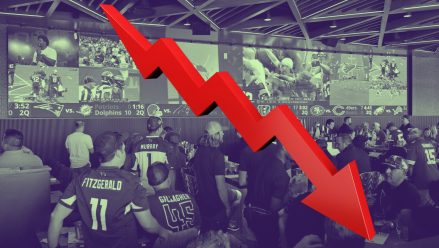Kalshi has proposed new rules around erroneous trades, requiring a $10,000 fee to review potentially incorrect trades, and clarifying that generally “trader error” is not grounds to cancel a trade, but with an exception that would apply to its market makers.
The suggested change comes just a month after the rule was first invoked, and may be a sign of how prediction markets look to attract more volume from institutional traders.
Kalshi submitted a proposed rule change to its regulator, the Commodity Futures Trading Commission (CFTC), Friday. The change concerns erroneous trades, and how Kalshi deals with them. As a proposal, the rule is not currently in effect.
Under the proposal, traders would now have to pay $10,000 to Kalshi in order to request a review into trades made in error.
5.11-Update-Filing-1The payment would be reimbursed if Kalshi determines that the error was ultimately due to a malfunction on its own platform.
Previously, erroneous trades could be reviewed, either after being flagged by Kalshi or by a trader, without any mention of a fee.
The rule has been invoked only once in Kalshi’s history, according to its log of exchange notices, in July when a “large trader error” led to a flurry of Major League Baseball bets placed at unlikely odds, including many at 99% implied probability. Given the timing, it is possible that Kalshi’s tweaking of the rule was in some way in response to those events.
Review only in certain circumstances
Alongside the fee, other checks exist to ensure the erroneous trade rules would not simply be used to walk back losing bets.
A review must be requested within 15 minutes of the trade order being placed, and in the event of a review, Kalshi will determine the “fair market value” of the contracts where the erroneous trades occurred. Trades would only be cancelled or adjusted if they are 20 cents or more away from the fair market value.
In addition, Kalshi says, “An erroneous trade made due to Trader error, or caused by circumstances preventable in any way by a Trader, shall not constitute ‘extraordinary circumstances,’” with one exception.
Trades between designated market makers that have been granted access to an advanced tier of Kalshi’s API may be adjusted, if Kalshi determines that the trade is due to an error with one party’s trading software that existed despite “reasonable safeguards” being in place, and the circumstances do not suggest an attempt to “game” the adjustment rules.
Market makers offer “resting orders” on the platform for other customers to bet on. A resting order must be matched by another Kalshi user, cancelled, or it may expire if an event happens and no other used matched it. Members of Kalshi’s designated market maker program receive certain benefits or rebates for doing so.
A basic feed of Kalshi’s API data – a live feed of market information such as prices, volumes, and event details – is available to all Kalshi users. But designated market makers have access to full orderbook data, and the ability to use the API to place trades, allowing them to more easily build their own trading software.
The combination of the $10,000 fee and the rule regarding trading software errors appear to be an advantage for large traders when compared to Kalshi’s previous rulebook, which didn’t specify a a difference between market makers and other users, but arguably provided less clarity about when a trade might be adjustable.
Financial institutions could be key for Kalshi
The proposal comes as prediction markets aim to court institutional money, particularly to provide greater volume on non-sporting markets. Though a minority of volume on Kalshi at the moment, the business still sees non-sporting markets as its greatest long-term growth opportunity, and a potential “new asset class” if more financial institutions use its markets as a way to hedge against various forms of risk that can’t be directly bet on through instruments like stocks or bonds.
Upstart prediction exchange Railbird’s terms and conditions prompted speculation that it sought to differentiate itself from Kalshi partly by being more friendly to institutional customers. As noted by the 50 Cent Dollars Substack newsletter, Railbird’s rules detailed an extensive arbitration process in the event of disputes, more typical of the process that could surround a large business deal than those of a sports bet. Sports betting giant DraftKings is reportedly in talks to buy Railbird.
In the broader financial world the sports betting industry is tiny compared to the amount of money financial institutions spend anticipating or hedging against various political, economic, or technological outcomes. Though in the short term Kalshi is likely to continue to court traditional sports betting customers, its long-term potential may depend at least in part on whether it can get institutional traders to trust it as an option for hedging or exposure to events.
Kalshi’s largest outside market maker is believed to be financial giant Susquehanna International Group, but other financial institutions appear to be slower to get on board with the world of prediction markets.
Kalshi has argued that a number of companies could benefit from hedging against certain outcomes via prediction markets. During its 2023 court case against the CFTC over the status of election contracts, Kalshi argued that “a firm in a regulated industry might buy contracts predicting that a very aggressive nominee will be confirmed as its lead regulator, to help mitigate the risks associated with that official’s adverse regulatory agenda.”







